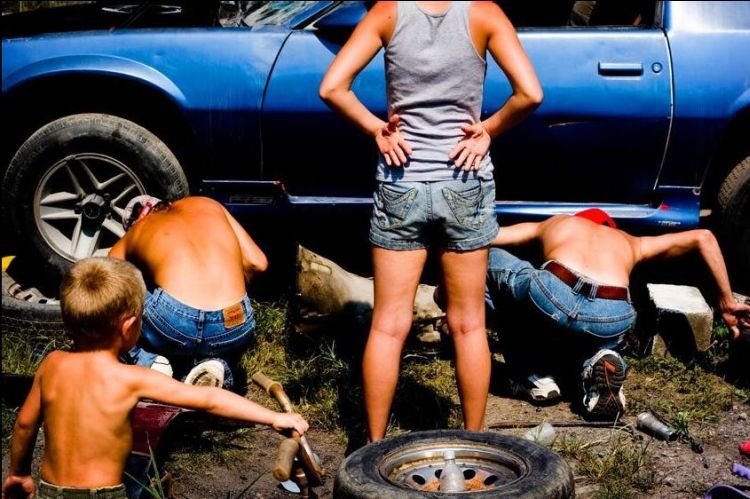|
|
Shooting American Family, Kentucky, By Carl Kiilsgaard
|
Contemporary society generally views family as a haven from the world, supplying absolute fulfillment. The family is considered to encourage "intimacy, love and trust where individuals may escape the competition of dehumanizing forces in modern society." During industrialization, "the family as a repository of warmth and tenderness (embodied by the mother) stands in opposition to the competitive and aggressive world of commerce (embodied by the father). The family's task was to protect against the outside world." However, Zinn and Eizen note, "The protective image of the family has waned in recent years as the ideals of family fulfillment have taken shape. Today, the family is more compensatory than protective. It supplies what is vitally needed but missing in other social arrangements."
"The popular wisdom," Zinn and Eitzen say, is that the family structures of the past were superior to those today and families were more stable and happier at a time when they did not have to contend with problems such as illegitimate children and divorce. They respond to this, saying, "there is no golden age of the family gleaming at us in the far back historical past." "Desertion by spouses, illegitimate children, and other conditions that are considered characteristics of modern times existed in the past as well."
Still others argue that whether or not we view the family as "declining" depends on our definition of "family." The high rates of divorce and out-of-wedlock births indicate a decline in the institution of the family. No longer are marriages arranged for political or economic gain, and children are not expected to contribute to family income. Instead, people choose mates based on love. This increased role of love indicates a societal shift toward favoring emotional fulfillment and relationships within a family, and this shift necessarily weakens the institution of the family.
|
|









